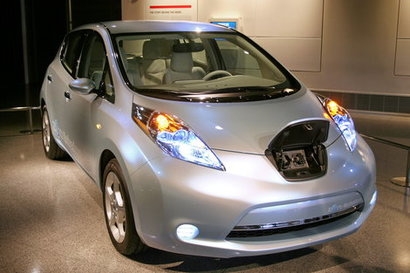
Currently, British drivers are unwilling to pay as much for EVs as those drivers in other markets. On average, they would consider buying an EV in 2025, a year later than the global average. For UK consumers, a price point of £24,000 (or $30,000), a charge time of 30 minutes and a range of 282 miles (or 453 kilometres) from a single charge are the ‘tipping points’ to achieve mainstream EV adoption.
The research also estimates that the annual electric vehicle market in the UK could be worth £13 billion (or $16 billion) by 2025 if all three tipping points are met.
“The automotive industry has been hit hard by the coronavirus pandemic, but I believe that electric vehicles have a central role to play in powering the sector’s low-carbon recovery” said Omer Dormen, VP, Castrol Europe. “Castrol’s research shows that individual consumers are positive about making the switch to electric, but buyers in the UK expect to do so slightly later than those in other markets, and are keen to pay a bit less. As an industry we must focus on the factors that matter most to consumers. The three tipping points revealed in Accelerating the EVolution provide a clear roadmap for the automotive industry to help accelerate mainstream adoption of EVs.”
Based on research from eight of the world’s most important electric vehicle markets, Castrol’s study examines five critical challenges that should be addressed to promote further growth in the EV market, highlighting the different priorities for consumers and fleet managers.
Key findings from the opinion research, which was conducted December 2019 to January 2020, include:
On average, British drivers said they would consider purchasing an EV by 2025, a year later than the global average. Almost two-thirds of those surveyed (64 percent) said they are adopting a ‘wait and see’ approach. Around 60 percent of fleet managers said they are waiting for competitors to make the switch before they do.
Price is the number one priority for consumers in the UK, with 68 percent saying that EVs are currently beyond their budget. Once vehicles have an average price tag of £24,000 (or $30,000), UK drivers said they’d be willing to go electric. This price point is significantly lower than the global average of £29,000 (or $36,000), suggesting that British consumers are not willing to pay as much as those elsewhere.
The study also finds that misconceptions about maintenance costs could be stopping consumers making the switch: 62 percent say that these costs were preventing them from buying a fully electric car. This suggests that many consumers are unaware that the overall average cost of ownership of an EV over its lifetime tends to be lower than an ICE vehicle.
Charge time was identified as the second most important challenge to the mainstream adoption of EVs, and UK consumers said they require an average charge time of 30 minutes before they would consider purchasing an EV. Almost seven in 10 (69 percent) of those questioned believe EVs will only dominate on the roads once they can charge in a similar time as it takes to refuel an internal combustion engine (ICE) vehicle.
Range was ranked third on the priority list by UK drivers, with three in five of those surveyed agreeing that it is a significant barrier to the mainstream adoption of EVs. On average, they expect a range of 282 miles (or 453km) from a single charge, approximately equivalent to the distance from London to Paris. However, we found that half of consumers don’t drive the full range on one charge as they mainly use their car for short journeys or commuting, suggesting that ‘range anxiety’ may only be driving their preference in part.
“The automotive industry has already demonstrated what it can achieve in response to the coronavirus pandemic, turning its capabilities to producing much needed medical equipment” said Mandhir Singh, chief executive officer at Castrol. “With EV technology constantly improving, the challenge now will be to drive a low-carbon recovery and accelerate the EVolution as quickly as possible. Castrol has been working with the automotive industry to develop unique e-Fluid technology to support EVs, from battery coolant e-fluid, e-greases and transmission fluids. Bringing down the cost and charge time for electric vehicles while increasing range, infrastructure and vehicle choice will be critical to persuading consumers to make the switch.”
For additional information:

